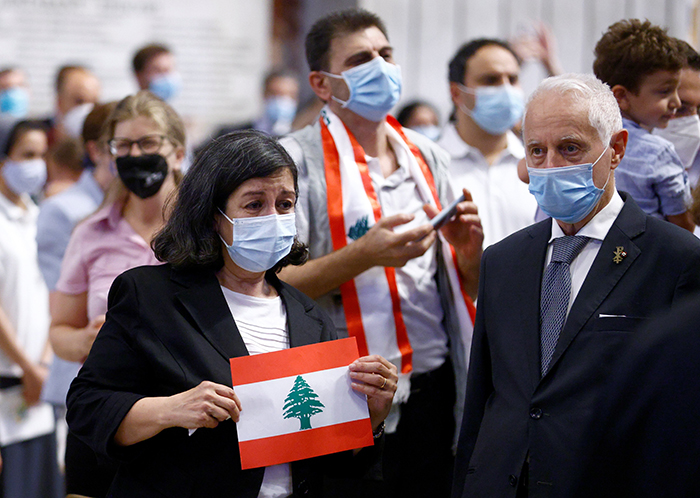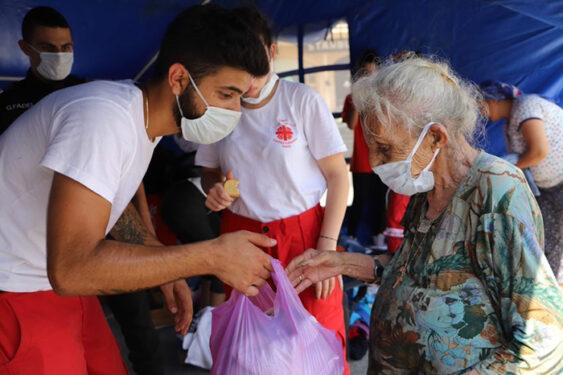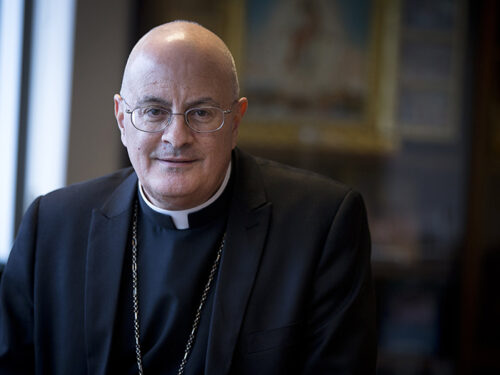
PROSPECT HEIGHTS — The Russian Army’s assault on Ukraine has killed thousands and reduced cities and villages to ruins. But it has also choked off vital food exports, threatening countries hundreds of miles away — like Lebanon — with a severe hunger crisis.
On May 2, Ukraine’s President Volodymyr Zelenskyy claimed Russia’s blockade of Black Sea ports was about to ignite severe food shortages throughout Europe, Asia, and Africa.
For nearly 7 million people in Lebanon — about half of them Christians — a hunger emergency was already gaining momentum.
Archeparch Charbel Abdallah, the Maronite Bishop of Tyre, recently reported to Aid for the Church in Need (ACN) that soaring inflation, plummeting wages, and devalued currency are making most foods unaffordable.
“The average salary now does not exceed $40 per month,” the bishop said in his update, shared by ACN. “For this reason, families can no longer buy necessary food products such as meat and vegetables and fruit, because the prices are always rising, especially meat, since 1 kilogram now costs a quarter of a salary.
“From this, we are now facing a malnutrition problem, which affects children, who are forced to eat exclusively rice or other kinds of grains.”
Now, Russia’s Black Sea blockade is taking a toll on Lebanon’s scant wheat supplies. Human Rights Watch and UNICEF both report that Lebanon in 2020 got 80% of its wheat from Ukraine, a worldwide supplier of grain, vegetables, and other agricultural products.

Ed Clancy, director of outreach for Aid to the Church in Need USA, based in Brooklyn, explained that the August 2020 explosion in the Port of Beirut destroyed key grain silos, driving the nation’s storage capacity down to a single month.
There are grave concerns that the monthly supply would soon run out, and not be replenished soon. That’s because global wheat suppliers are reluctant to do business with cash-strapped Lebanon, Clancy said.
“You see that there’s so many interdependent little pieces that come together and cause even greater problems in Lebanon,” Clancy said. “There are ships stuck in Ukraine not able to get to the main waterways, waiting to make deliveries to Lebanon.”
Bishop Gregory Mansour of the Eparchy of St. Maron of Brooklyn, said Lebanese people courageously sacrifice their own comfort to help ensure everyone survives the crisis.
“For instance,” he said, “my cousin owns one of the largest mills in Lebanon. He’s taken a huge hit — he and his family and their investors — so that he can continue to give the same salaries to all of his employees and to keep bread prices competitive.”
So far, widespread starvation has not yet occurred in Lebanon, but hunger is noticeable and there are other reasons to be worried, said Xavier Bisits, ACN’s project coordinator in Lebanon and Syria.
“When the war (in Ukraine) began, people ran and tried to buy as much wheat as they could, so the prices jumped,” Bisits said. “Now, the price of wheat is higher than it was previously. Already, there has been rationing of bread at some bakeries.”
Poor children are turning up at school hungry, families are cutting out meat from their diets, and many Lebanese have started growing food on the land again to sustain themselves, he noted, adding: “The poorest Christian families are heavily reliant on the Church for help in this situation.”
Pope Francis understands all of this. He had indicated a desire to visit Lebanon in June but on Monday, a Lebanese government official said a visit to the country, which had never been formally announced by the Vatican, was being postponed due to the pope’s health.
The Vatican said a new date would be communicated “as soon as it is determined.”
Until an official announcement is made, Lebanese Christians, and observers like Bishop Mansour and Clancy, will pray for it to happen.

“Anytime the Pope travels to a location, awareness of that location builds,” Clancy said. “There’s just no doubt about it. We saw that in Iraq last year.
“I think the Holy Father’s presence there, and the words that he uses, will both encourage the people and also encourage the leaders.”
Bishop Mansour said a papal visit “would be very big.”
“Lebanon still has a vibrant Christian-Muslim conviviality,” he asserted. “It is the only place in the world that is that way. Other than political differences, there is not Muslim-Christian animosity, thanks, be to God. And that, we don’t want to lose.”
“But we can lose it, politically,” Bishop Mansour added.

